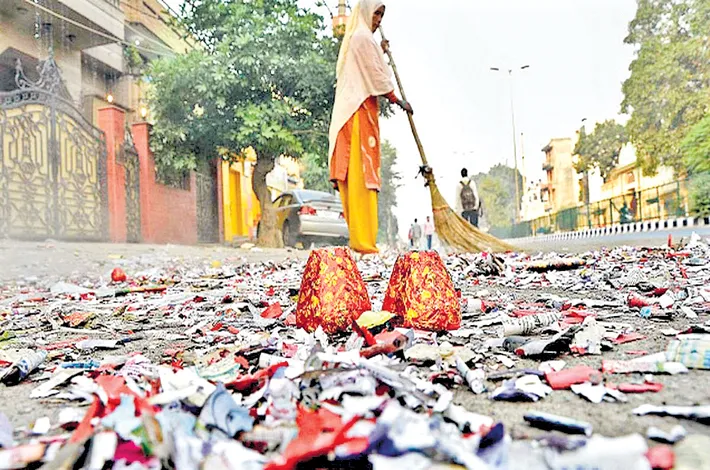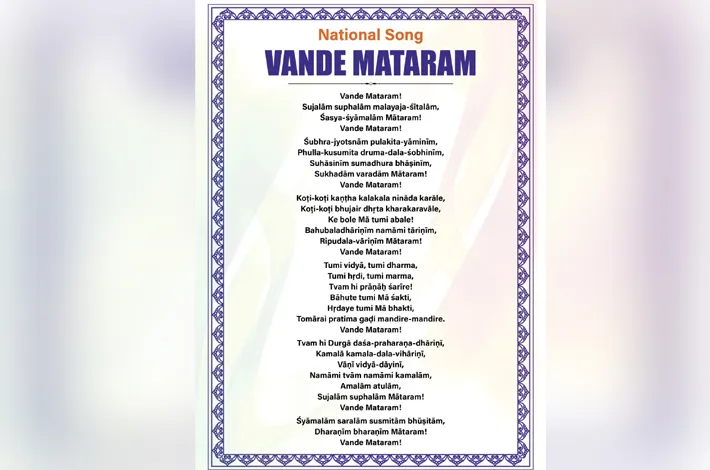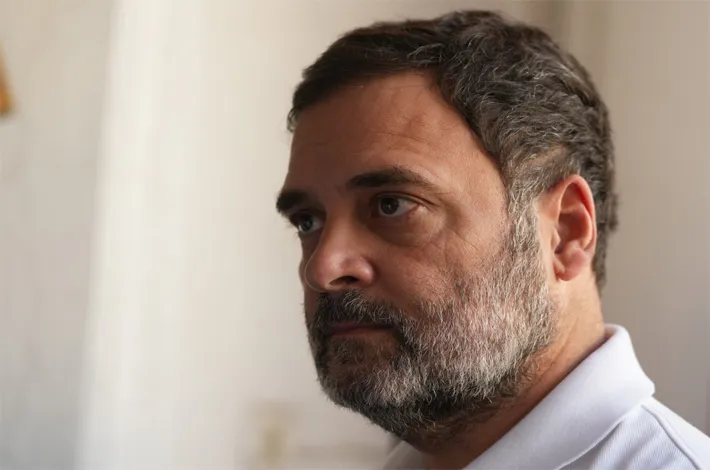Diwali sees surge in waste, air and noise pollution across Hyderabad
23-10-2025 12:00:00 AM

Metro India News | Hyderabad
Hyderabad experienced a noticeable rise in waste and pollution during this year’s Diwali celebrations. According to GHMC data, garbage collection increased from an average of 7,700 metric tonnes to 8,080 metric tonnes on October 21, a 4.9% rise, and further to 8,200 metric tonnes on October 20, marking a 6.5% increase. The rise was largely due to firecracker debris, packaging, and festive waste scattered across multiple localities.
GHMC Sanitation AE Deepak John said the trend is expected to continue over the next two days, with all collected waste being transported to the Jawaharnagar dump yard. Sanitation teams remained active throughout the festival period to ensure prompt cleaning. He added that waste levels would have been even higher had more residents stayed in the city instead of travelling to their native places.
Spike in noise and air pollution across the city
Sensitive zones recorded the highest noise levels, with 63.5 decibels during the day and 60.3 at night, well above permissible limits of 50 and 40 decibels. Across eight monitored locations, industrial zones saw daytime noise average 65.9 decibels and nighttime 61.6 decibels, slightly below standard limits of 75 and 70 decibels. Commercial areas recorded 64.05 and 61.08 decibels, while residential zones logged 64.03 and 60.68 decibels, all higher than usual non-festival readings.
Air quality also worsened significantly. PM2.5 levels rose from an average of 37 micrograms per cubic metre on normal days to 69 micrograms, an 86% increase. PM10 levels climbed from 91 to 153 micrograms per cubic metre, a 68% rise, both well above the safe limits prescribed by the Central Pollution Control Board. Sulphur dioxide and nitrogen oxide levels increased to 17 and 30 micrograms per cubic metre respectively but remained within permissible 24-hour limits.
Officials noted that awareness campaigns and early morning clean-up drives helped reduce the impact. Overall, Hyderabad recorded a 6.4% increase in waste generation, alongside temporary spikes in particulate matter and noise levels during Diwali.








